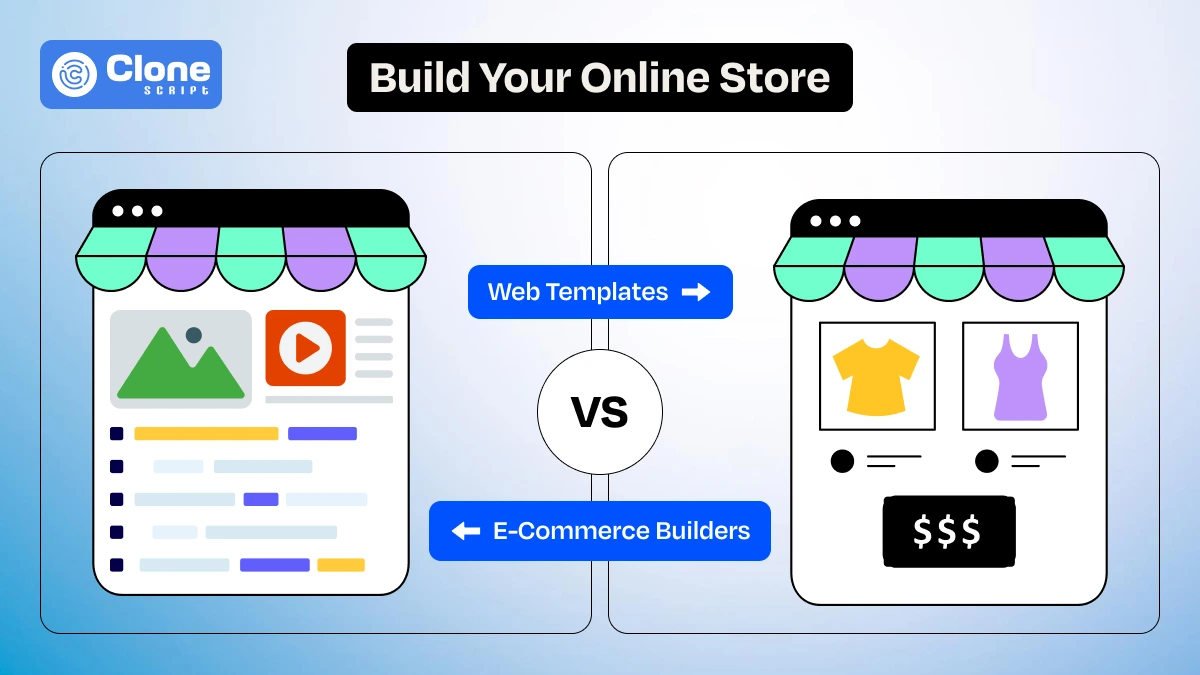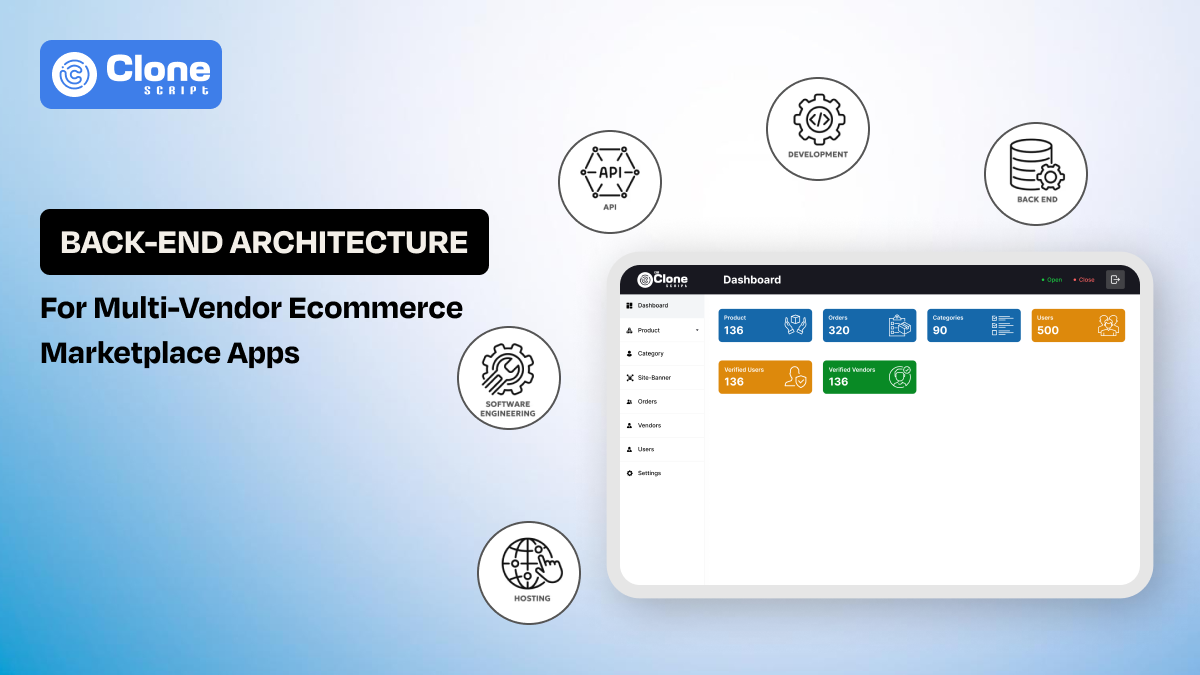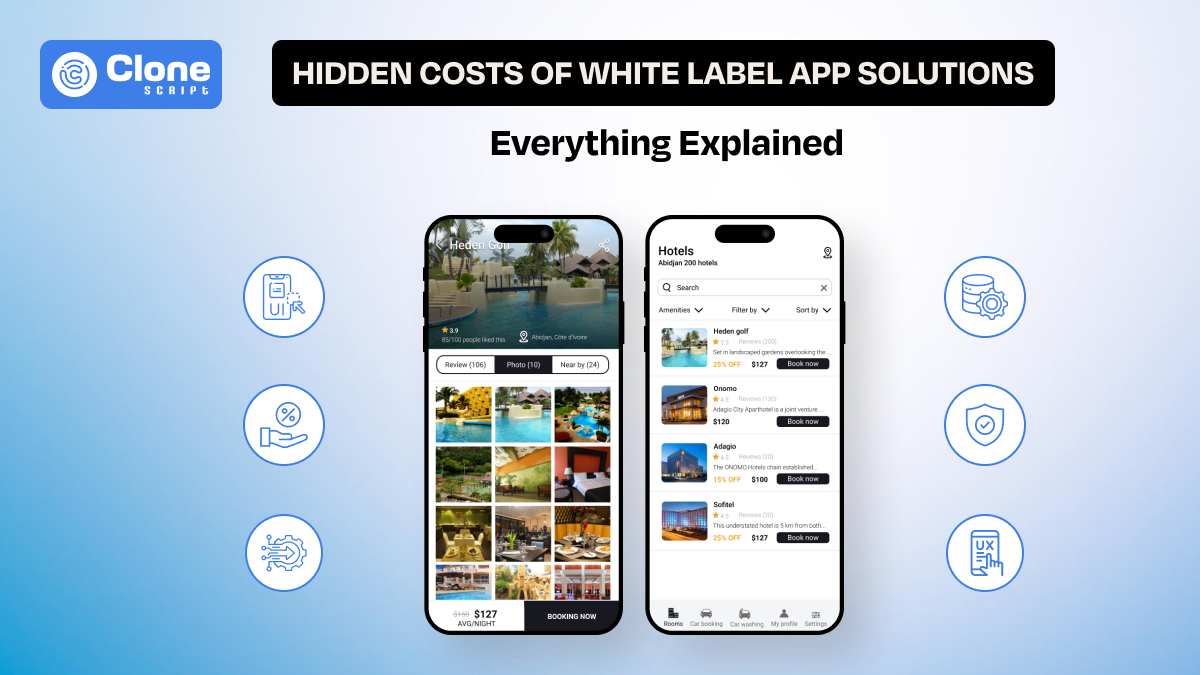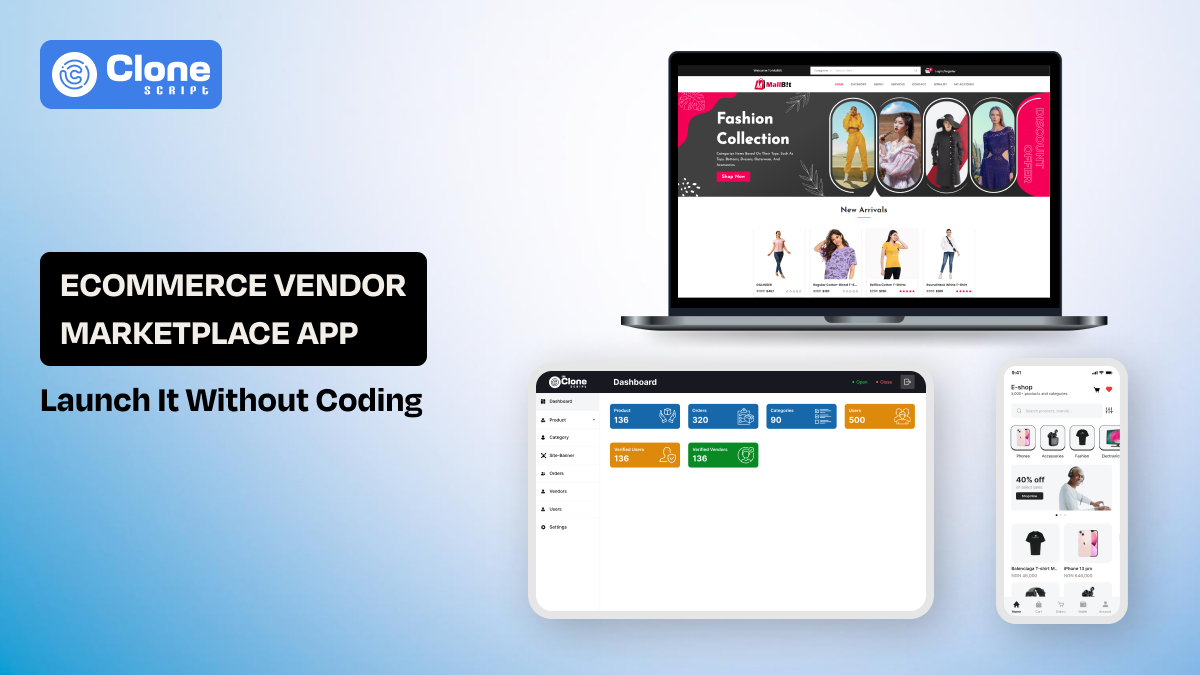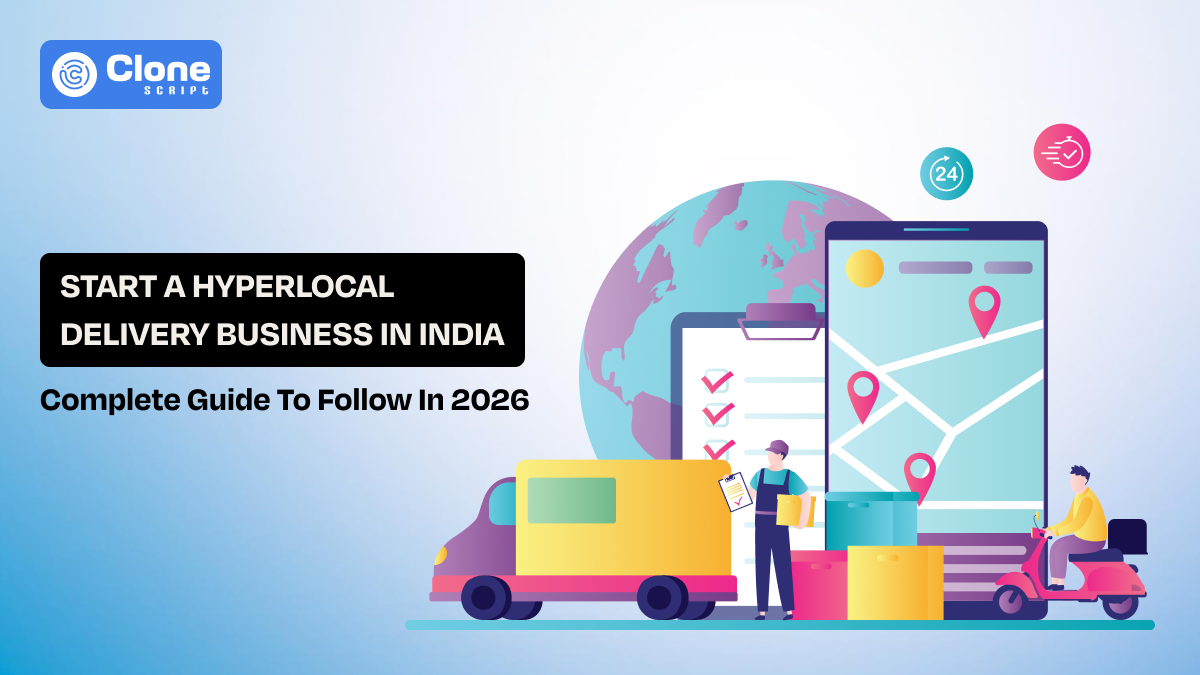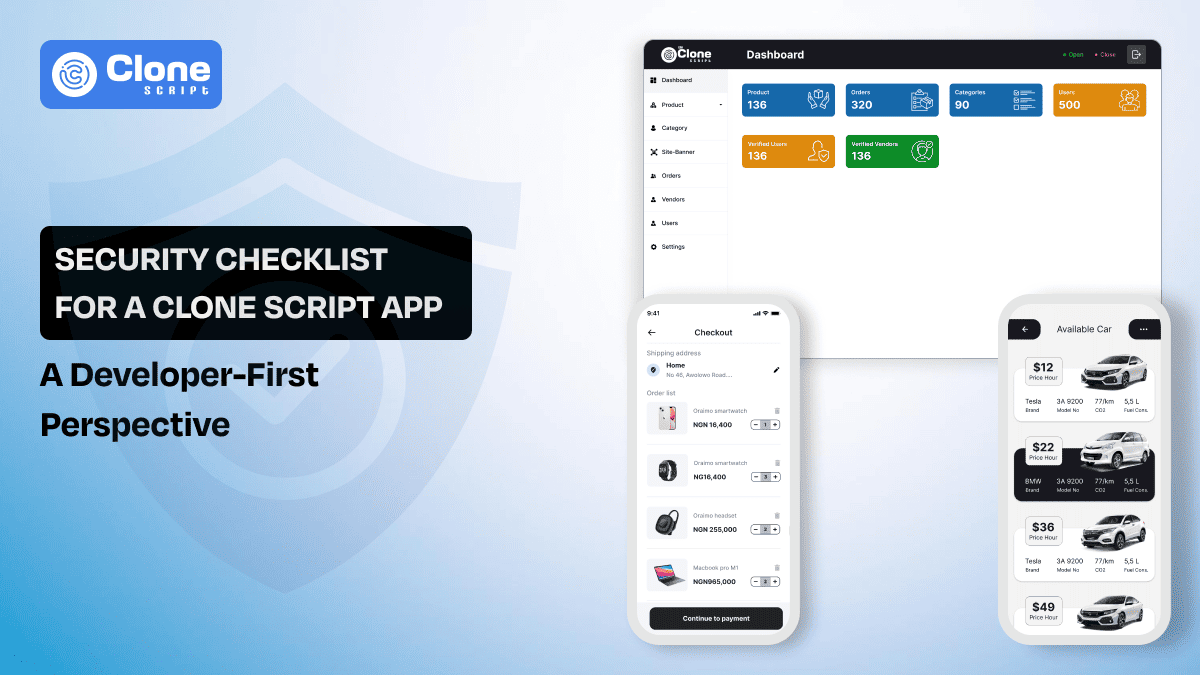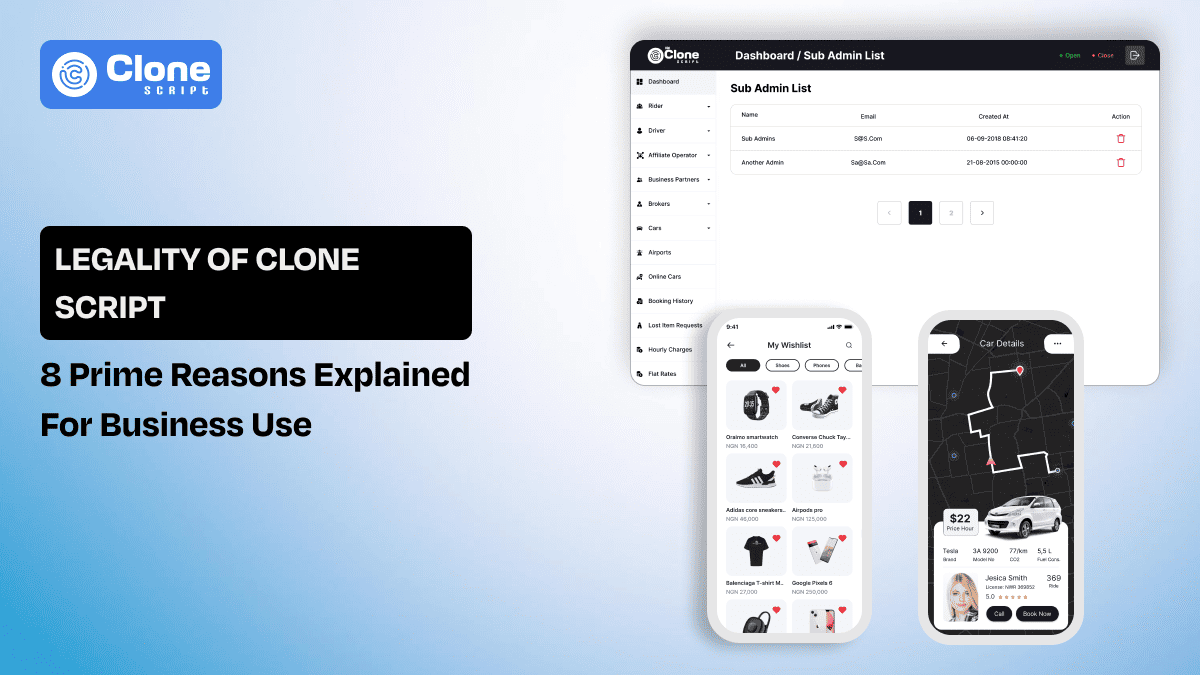E-commerce Builders vs. Templates: Build Your Online Store
In a world where digital storefronts are successful, building your own online store isn't just a good idea; it's essential. Whether you're selling handcrafted jewelry, premium dog treats, or launching your streetwear brand, your online store becomes the face of your business.
But with so many tools available, how do you choose between e-commerce builders and pre-designed website templates?
Both options promise speed, cost-effectiveness, and simplicity. But the truth is, the right choice depends on your goals, skill level, and how much control you want over your online presence.
In this article, we’ll break down everything you need to know about e-commerce builders vs. templates, without the fluff. Let’s dive into the core of what truly matters when starting your online store in 2025.
What are e-commerce store builders?
E-commerce builders like Shopify, Wix, BigCommerce, and Squarespace offer end-to-end platforms where you can build, host, and manage your online store. Think of them as the IKEA of online selling. They give you all the parts and the instructions, so you can set up shop without needing a developer.
Most builders come with:
-
Drag-and-drop design interfaces
-
Built-in hosting
-
Security (SSL, PCI compliance)
-
Integrated payment gateways
-
Apps and plugins for extra features
They’re perfect for non-technical users or small businesses who want to get online quickly without touching a single line of code.
What are pre-designed website templates?
Web templates, on the other hand, are ready-to-use design frameworks for e-commerce website development. These could be HTML templates, WordPress themes with WooCommerce, or even design systems built for specific industries. Also, templates are designed with CSS frameworks like Bootstrap and Tailwind, and even the React framework to add functionality.
These templates give you:
-
A professional layout out of the box
-
Full control over customization
-
Freedom to choose your hosting provider
-
More scalability (especially if you’re working with developers)
Website templates are ideal for businesses that want a unique look or plan to scale quickly without platform limitations.
Head-to-Head Comparison: What Should You Consider?
Let’s compare the two approaches for choosing a website builder and template based on the most important factors for any e-commerce entrepreneur.
1. Speed to Launch
-
Website builders: With a website builder, you can go live in hours. Just pick a theme, add your products, connect your payment method, and you're set. This flexibility makes it more preferable for small local stores that want to showcase their online presence for a certain area.
-
Website templates: Using a web template demands more technical knowledge to set up the store, and it takes longer. You’ll need to configure hosting, install the theme, and potentially do some light coding or customization.
Verdict: It’s obvious that if you want to quickly capture the market, website builders are not an ideal selection at all.
2. Design Flexibility and Branding
-
Website builders: Limited design flexibility is the disadvantage of choosing an e-commerce website builder. You have to pay for advanced themes or hire a developer to configure the entire store setup to match the store's branding. Ultimately, you’re locked into what the e-commerce platform allows.
-
Website templates: Here, you have full control over your store design, even most templates are optimized for enhanced e-commerce UX. You can tweak everything from the layout to animations, fonts, and product displays. The customization possibility makes website templates to preferable choice for cost-effective e-commerce development.
Verdict: E-commerce store templates win if brand identity is your top priority. Then don’t go for a website builder to compromise branding.
3. Ownership and Scalability
-
Website builders: Your site lives on their platform. You own your data, but have to rely on their infrastructure. This can limit to add advanced features for the store or make migration harder when your business grows and the user base increases. However, you have to change the subscription plans to access exclusive features to manage the entire store.
-
Website templates: You have full ownership of the online store. You can scale your website however you want, migrate easily, and integrate advanced tools. There’s no need to face issues about data security, as all the control you have already.
Verdict: Website templates are a clear winner for long-term flexibility and business growth compared to e-commerce builders.
4. Cost Over Time
-
Website builders: You’ll likely have to pay a monthly subscription fee, plus extra for apps and premium features. This will be more costly for your startup as it doesn’t have too large user base. Wherever you have a hundred or thousands of users, you have to pay a certain amount, there’s no exception.
-
Website templates: They contain a higher upfront cost (template, hosting, maybe a developer), but potentially lower ongoing costs. Once the store is live you don’t have to pay a monthly fee to e-commerce platforms. Only spend on timely QA & Testing to ensure the security of the website.
Verdict: Website templates can save you money in the long run if you plan wisely. You have a preference to scale the store as you wish without the barrier of certain platforms’ pre-required criteria.
5. Maintenance and Support
-
Website builders: There is Customer support is built in. You don’t need to worry about security patches, hosting issues, or downtime. If you face any of the issues in running your e-commerce store, just contact them and they will initially solve it.
-
Website templates: You’re in charge of updates, backups, and maintenance unless you hire someone. There is also support available. For example, on your site customer doesn’t make online payments through PayPal or credit cards. This makes the shopping experience frustrating and affects the conversion rates. To fix this, you have to rely on web developers.
Verdict: Website builders are a good choice for hassle-free management of an e-commerce store without getting involved in technical glitches. It’s good to go with templates if you have an in-house team for website maintenance.
Who Should Choose E-commerce Builders?
If you’re just starting, don’t want to deal with code, and need something that just works, go with an e-commerce builder. It’s your fastest path from idea to income.
It is perfect for:
-
First-time entrepreneurs
-
Solo product sellers
-
Local stores expanding online
-
Side hustlers testing the waters
Website builders give you the structure, tools, and security to run a small to mid-sized online store with minimal effort.
Who Should Choose E-commerce Website Templates?
If your vision goes beyond a simple store or if you plan to grow fast without custom development, you’ll want the flexibility that templates offer. You’re not boxed into what a platform allows. You can optimize performance, user experience, and even SEO your way.
It is perfect for:
-
Brands that want a unique visual identity
-
Startups aiming to scale fast
-
Businesses with technical teams or developer support
-
Agencies building client stores
Website templates let you go beyond generic designs and truly own your store's experience from top to bottom.
What They Don’t Tell You?
Let’s ignore the marketing jargon and talk honestly.
-
Platform Lock-in is Real: E-commerce builders are easy until you want to switch platforms or add custom backend functionality. You’ll often find yourself limited without expensive add-ons.
-
Templates Aren’t Just for Developers: The myth that you need a developer to use a template is outdated. Many modern templates come with clean documentation, visual editors, and support.
-
Speed vs. Strategy: Just because you can launch quickly doesn’t mean you should. Your store isn’t just a place to sell. It’s your brand’s experience. Taking the time to design that experience right pays off in conversions.
-
Apps Can Get Pricey: E-commerce builders make it easy to integrate apps, but these add up. A $29/month plan could balloon into $100+ with add-ons you didn’t anticipate.
-
Templates Can Future-Proof You: Want to eventually move to headless commerce or integrate with a custom inventory system? Templates give you that path. Builders? Not so much.
What About SEO, Performance, and Conversion?
If you think which works better for SEO, performance, and conversion between builder and template, consider:
-
Performance: Templates can be faster, especially if you’re using lightweight code and clean hosting. Builders can get bloated with too many apps and third-party scripts.
-
SEO: Templates (especially if built on platforms like WordPress + WooCommerce) give you more granular control over SEO. Builders do the basics, but technical SEO flexibility is limited.
-
Conversion Optimization: Builders come with apps and built-in analytics, but templates let you go deeper into custom funnels, split-testing tools, dynamic content, etc.
What’s Trending in 2025?
A few fresh trends are shaping how people build stores today:
-
Niche Templates for Specific Industries: From sneaker drops to handmade candles, niche templates are tailored to your audience and product type, cutting design time in half.
-
Headless Commerce Models: Brands are combining front-end templates with powerful back-end platforms like Shopify or BigCommerce via APIs for full control and speed.
-
AI-Powered Personalization: Whether you’re using a builder or a template, personalization tools that adapt content to each visitor are becoming the standard, not the luxury.
-
Mobile-First Templates: With +75% of traffic coming from mobile devices, templates are now being built mobile-first, not just mobile-friendly.
Final Thoughts: Which One Should You Choose?
There’s no one-size-fits-all answer here. But here’s a practical takeaway:
-
Choose e-commerce builders if you need to launch fast, want ease of use, and are okay with limited control.
-
Choose e-commerce templates if you value flexibility, brand identity, and long-term scalability.
Ask yourself this: Do I want to build a business or just a store?
If your goal is a quick side hustle, go with a builder. But if you’re serious about growing your brand, investing in a well-crafted template can give you the creative and strategic edge to stand out in a crowded digital marketplace.
Bonus Tip: Don’t Skip the Strategy
No matter which option you choose, the tool doesn’t build a successful store—the strategy does. Focus on:
-
Understanding your target audience
-
Crafting a compelling brand story
-
Optimizing for user experience
-
Driving traffic through organic and paid marketing
The right platform just makes it easier to execute.
Ready to build your store? Whether you go with an intuitive e-commerce builder or a powerful design template, make sure your online store reflects the quality, passion, and uniqueness behind your brand.
If you’re looking for high-converting, professionally designed e-commerce templates tailored for your niche, we’ve got something just for you. Browse our best e-commerce website templates and launch a store that sells. Contact us for a complete solution for online store development.
 BTC - Bitcoin
BTC - Bitcoin
 USDTERC20 - USDT ERC20
USDTERC20 - USDT ERC20
 ETH - Ethereum
ETH - Ethereum
 BNB - Binance
BNB - Binance
 BCH - Bitcoin Cash
BCH - Bitcoin Cash
 DOGE - Dogecoin
DOGE - Dogecoin
 TRX - TRON
TRX - TRON
 USDTTRC20 - USD TRC20
USDTTRC20 - USD TRC20
 LTC - LiteCoin
LTC - LiteCoin

